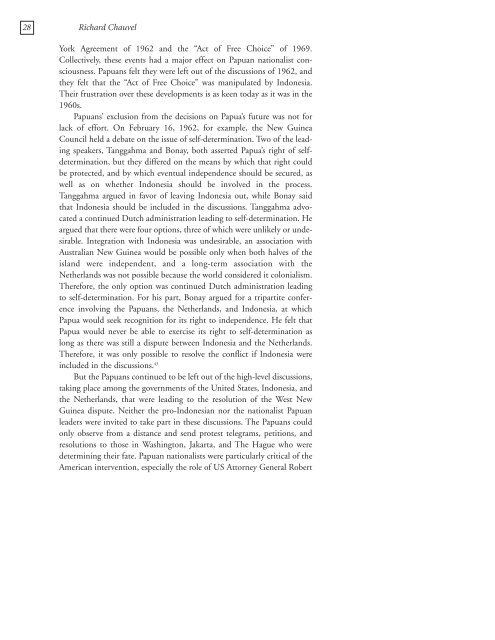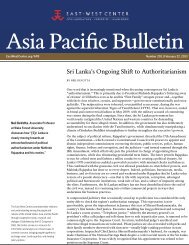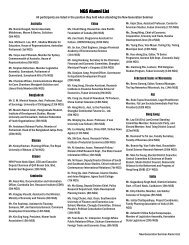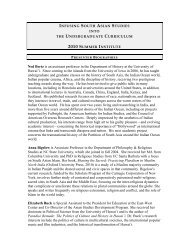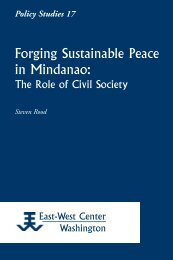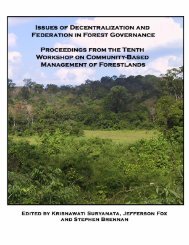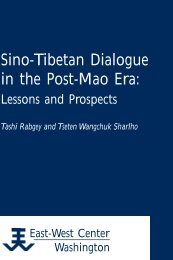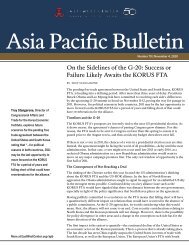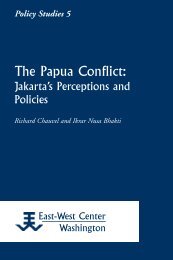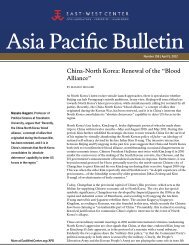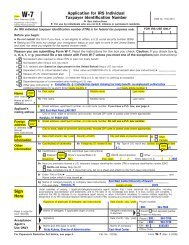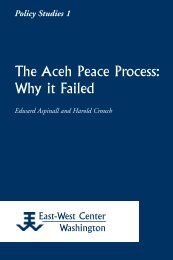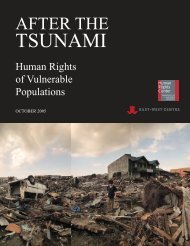Constructing Papuan Nationalism: History, Ethnicity ... - ScholarSpace
Constructing Papuan Nationalism: History, Ethnicity ... - ScholarSpace
Constructing Papuan Nationalism: History, Ethnicity ... - ScholarSpace
- No tags were found...
You also want an ePaper? Increase the reach of your titles
YUMPU automatically turns print PDFs into web optimized ePapers that Google loves.
28 Richard ChauvelYork Agreement of 1962 and the “Act of Free Choice” of 1969.Collectively, these events had a major effect on <strong>Papuan</strong> nationalist consciousness.<strong>Papuan</strong>s felt they were left out of the discussions of 1962, andthey felt that the “Act of Free Choice” was manipulated by Indonesia.Their frustration over these developments is as keen today as it was in the1960s.<strong>Papuan</strong>s’ exclusion from the decisions on Papua’s future was not forlack of effort. On February 16, 1962, for example, the New GuineaCouncil held a debate on the issue of self-determination. Two of the leadingspeakers, Tanggahma and Bonay, both asserted Papua’s right of selfdetermination,but they differed on the means by which that right couldbe protected, and by which eventual independence should be secured, aswell as on whether Indonesia should be involved in the process.Tanggahma argued in favor of leaving Indonesia out, while Bonay saidthat Indonesia should be included in the discussions. Tanggahma advocateda continued Dutch administration leading to self-determination. Heargued that there were four options, three of which were unlikely or undesirable.Integration with Indonesia was undesirable, an association withAustralian New Guinea would be possible only when both halves of theisland were independent, and a long-term association with theNetherlands was not possible because the world considered it colonialism.Therefore, the only option was continued Dutch administration leadingto self-determination. For his part, Bonay argued for a tripartite conferenceinvolving the <strong>Papuan</strong>s, the Netherlands, and Indonesia, at whichPapua would seek recognition for its right to independence. He felt thatPapua would never be able to exercise its right to self-determination aslong as there was still a dispute between Indonesia and the Netherlands.Therefore, it was only possible to resolve the conflict if Indonesia wereincluded in the discussions. 43But the <strong>Papuan</strong>s continued to be left out of the high-level discussions,taking place among the governments of the United States, Indonesia, andthe Netherlands, that were leading to the resolution of the West NewGuinea dispute. Neither the pro-Indonesian nor the nationalist <strong>Papuan</strong>leaders were invited to take part in these discussions. The <strong>Papuan</strong>s couldonly observe from a distance and send protest telegrams, petitions, andresolutions to those in Washington, Jakarta, and The Hague who weredetermining their fate. <strong>Papuan</strong> nationalists were particularly critical of theAmerican intervention, especially the role of US Attorney General Robert


